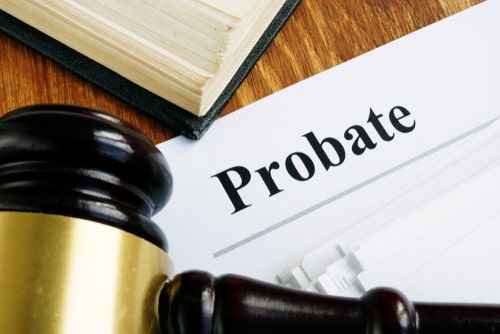 Serving Denton County Since 1992 | 6021 Morriss Rd., Suite 101, Flower Mound, TX, 75028
Serving Denton County Since 1992 | 6021 Morriss Rd., Suite 101, Flower Mound, TX, 75028

Recent Blog Posts
What Is a Living Will?
 One thing you can be sure of is that you have no way of knowing what will happen in the future. You could be in great health with a regular exercise routine an excellent diet, and an unforeseen accident or illness could change everything. While it is never nice to think about the worst-case scenario, it can be useful to force yourself to do so anyway and come up with plans for various possible situations that might occur. For example, if you are in a coma and the doctors are sure you will not recover, would you prefer to stay connected to a feeding tube and ventilation? If not, would you want to donate your intact organs to others?
One thing you can be sure of is that you have no way of knowing what will happen in the future. You could be in great health with a regular exercise routine an excellent diet, and an unforeseen accident or illness could change everything. While it is never nice to think about the worst-case scenario, it can be useful to force yourself to do so anyway and come up with plans for various possible situations that might occur. For example, if you are in a coma and the doctors are sure you will not recover, would you prefer to stay connected to a feeding tube and ventilation? If not, would you want to donate your intact organs to others?
Questions like these are certainly challenging to consider and can be made even more difficult to answer in the heat of the moment. You can draft a living will, which is an aspect of estate planning that can detail the types of medical care you wish to receive or refuse if you are incapacitated and unable to make or express decisions in real-time. Medical teams then refer to your living will and act in accordance. If you are considering a living will, speak with a qualified Flower Mound, TX estate planning attorney to find out more.
When Is It a Good Idea to Conduct an Estate Plan Review?
 When you draw up a will, it is like you are giving a wonderful gift to the people you will leave behind because you are taking the guesswork and uncertainty out of the equation. Your loved ones will know exactly what you want to be done with your assets and property even though you will not be there to tell them yourself. It eliminates any need for them to fight over who should get what.
When you draw up a will, it is like you are giving a wonderful gift to the people you will leave behind because you are taking the guesswork and uncertainty out of the equation. Your loved ones will know exactly what you want to be done with your assets and property even though you will not be there to tell them yourself. It eliminates any need for them to fight over who should get what.
However, even though having a will already sets you apart from about half the country according to a recent Gallup Poll, it does not mean that you are now set and do not need to think about this again. Like with everything in life, things can always change.
Maybe you want to leave everything you have to your children when you pass, but they were both minors living under your roof when you first wrote up your will, and now one is a single parent struggling to get by while the other is a successful CEO of a global company. Maybe a sister you were planning on leaving assets to has cut you out of her life. Maybe you have gotten married again since you wrote it. Maybe you have gotten involved with a charitable organization since you drew up your will and you would now like to leave it with something as well.
Life Insurance Estate Planning in Texas
 Protecting your hard-earned assets and ensuring a secure financial future for your loved ones is one of the most vital aspects of life plans. Estate planning is a crucial aspect of this process, and life insurance plays a vital role in preserving and transferring wealth to your beneficiaries. A Texas lawyer can help you properly incorporate life insurance into your estate planning strategy.
Protecting your hard-earned assets and ensuring a secure financial future for your loved ones is one of the most vital aspects of life plans. Estate planning is a crucial aspect of this process, and life insurance plays a vital role in preserving and transferring wealth to your beneficiaries. A Texas lawyer can help you properly incorporate life insurance into your estate planning strategy.
Liquidity for Estate Taxes
One of the primary concerns is the potential for estate taxes when handling life insurance. These taxes can significantly reduce the value of your estate, leaving your beneficiaries with a lesser inheritance than intended. Life insurance can provide the necessary liquidity to pay estate taxes, ensuring that your assets remain intact and can be distributed according to your wishes.
Wealth Replacement
Life insurance can also serve as a wealth replacement tool in your estate plan. For example, if you own a business or possess illiquid assets you intend to pass on to specific beneficiaries, life insurance can provide the funds to compensate other beneficiaries equitably. This ensures that your estate is divided fairly among your loved ones, preventing potential conflicts and preserving family harmony.
Estate Planning for Blended Families in Texas
 Estate planning can be a complex process, especially for blended families. With the rise of divorce and remarriage, many families now include children from previous relationships, making the distribution of assets and decision-making responsibilities more challenging. A Texas attorney can help you understand the essential aspects of estate planning for blended families and provide guidance on how to ensure your wishes are carried out.
Estate planning can be a complex process, especially for blended families. With the rise of divorce and remarriage, many families now include children from previous relationships, making the distribution of assets and decision-making responsibilities more challenging. A Texas attorney can help you understand the essential aspects of estate planning for blended families and provide guidance on how to ensure your wishes are carried out.
What You Should Know About Texas Estate Planning Laws
Texas estate planning laws differ from those in other states, so it is crucial to work with a knowledgeable attorney who understands the nuances of Texas law. In Texas, if you pass away without a will (intestate), any assets will be distributed according to the state’s intestacy laws, which may not align with your wishes. This is particularly important for blended families, as the default distribution may not provide for your stepchildren or other family members as you intended.
The Good and Bad of Texas Probate
 Probate in Texas is not always as complicated as it may seem. However, it is often made easier with the help of an attorney. In an ideal circumstance, the probate process will run quickly and efficiently. However, it can just as easily become a nightmare for the loved ones left behind. There are both pros and cons to the probate process that you will want to know about before tragedy strikes.
Probate in Texas is not always as complicated as it may seem. However, it is often made easier with the help of an attorney. In an ideal circumstance, the probate process will run quickly and efficiently. However, it can just as easily become a nightmare for the loved ones left behind. There are both pros and cons to the probate process that you will want to know about before tragedy strikes.
What is Probate?
Probate is the process of the Probate Court where a decedent’s assets are distributed. It is often administered through a will or the deceased who died intestate. The deceased’s assets are collected and used to pay for any remaining liabilities their estate may still have before being adequately distributed to other beneficiaries. All assets that cannot pass directly to beneficiaries must undergo probate.
Can I Put a DNR in my Texas Living Will?
 A Do Not Resuscitate (DNR) order and a living will are two entirely different legal documents concerning medical care and directives. It is a good idea to understand the difference between them so that you can better decide on your health in the case of incapacitation. It may be beneficial to retain an attorney who can discuss both documents at length and help you decide which fits your needs best.
A Do Not Resuscitate (DNR) order and a living will are two entirely different legal documents concerning medical care and directives. It is a good idea to understand the difference between them so that you can better decide on your health in the case of incapacitation. It may be beneficial to retain an attorney who can discuss both documents at length and help you decide which fits your needs best.
Do Not Resuscitate (DNR)
A DNR is an advanced directive order signed by a patient’s physician upon their request that does not allow them to be resuscitated if they suddenly stop breathing or go into cardiac arrest. Both the patient and physician need to sign the document and it should be kept in an easily locatable spot. This is to ensure it can be seen or found in the case of an emergency to allow a patient’s wishes to be met.
The Challenges of Intestacy in Texas
 Dying without a will in place to see your assets distributed according to your wishes can create additional complexities in the probate process. For one, Texas state law will have to distribute your assets as it deems fit which can cause unforeseen problems among family and friends. Do not presume that a surviving spouse will automatically inherit your left-behind assets or that your children will benefit. To truly understand the depth of the legal landscape involving intestacy will require a professional, such as an experienced estate planning lawyer, to peel back the layers and provide comprehensive insight.
Dying without a will in place to see your assets distributed according to your wishes can create additional complexities in the probate process. For one, Texas state law will have to distribute your assets as it deems fit which can cause unforeseen problems among family and friends. Do not presume that a surviving spouse will automatically inherit your left-behind assets or that your children will benefit. To truly understand the depth of the legal landscape involving intestacy will require a professional, such as an experienced estate planning lawyer, to peel back the layers and provide comprehensive insight.
Dying Intestate
Dying intestate simply means that there was no will left after a person’s death detailing their desires and wishes for their estate, how it should be distributed, and who it should be distributed to. When dying without a will, Texas intestacy laws determine the fate of the estate on behalf of the recently departed. The intestacy rules are predefined and follow distribution based on a predetermined hierarchy that is specific to each jurisdiction, such as Denton County.
The Different Types of Trusts in Texas
 A trust is essential to ensuring your loved ones are well taken care of long after you have passed on. When thinking about establishing a trust in Texas, one must first understand the types of trusts that are available to them. You will also want to understand all of the responsibilities and rights as the creator of the trust, or grantor, that each type provides. An experienced Denton County, TX estate attorney can provide all of the information you need and more regarding trusts, wills, and all other aspects of estate planning.
A trust is essential to ensuring your loved ones are well taken care of long after you have passed on. When thinking about establishing a trust in Texas, one must first understand the types of trusts that are available to them. You will also want to understand all of the responsibilities and rights as the creator of the trust, or grantor, that each type provides. An experienced Denton County, TX estate attorney can provide all of the information you need and more regarding trusts, wills, and all other aspects of estate planning.
Revocable and Irrevocable Living Trusts
Establishing a revocable living trust will allow the grantor access to his or her assets while they are still alive. In the event of the grantor’s death, the assets will pass over to the beneficiary and not require them to go through the probate process. A revocable trust can be dissolved if the grantor chooses to do so. This makes it different from that of an irrevocable trust which prohibits the grantor from dissolving the trust.
Navigating Texas Probate: What You Need to Know
 After a person passes away, the individual’s estate often goes through the process of probate. If a person created a will before passing, then the court will appoint the person named in the will as executor of the estate. If a person passes without a will, then the Texas laws of intestacy will determine how assets are distributed
After a person passes away, the individual’s estate often goes through the process of probate. If a person created a will before passing, then the court will appoint the person named in the will as executor of the estate. If a person passes without a will, then the Texas laws of intestacy will determine how assets are distributed
The probate process is complicated, but getting the best representation should not be. If you are in the process of probating your family member’s estate, do not hesitate to contact a Flower Mound probate administration attorney
What is Probate?
Probate is the process of naming someone to handle an estate and distributing assets to beneficiaries. The executor is either named in the will or appointed by the court (if the deceased died without a will). Probate will follow the terms that are specified in the will. If the deceased did not execute a will, then assets will be distributed based on the laws of intestacy (more on this later)
Components of a Comprehensive Estate Plan

Planning who will receive your assets and property upon your death is just one aspect of estate planning. Estate planning also involves deciding who will handle your finances and make medical decisions in the event that you are incapacitated.
A comprehensive estate plan will comprise several legal documents, along with beneficiary designations for certain accounts. This complex process is best handled by a Flower Mound estate planning attorney.
Last Will & Testament
Perhaps the most important document in a comprehensive estate plan, your will designates who will receive your assets and property when you die.
If your estate is probated, this legal document will tell the court who you want to be in charge of your estate (i.e., executor) and which beneficiaries will receive your assets. It also allows you to name a guardian to care for your children if they are still minors when you pass.





